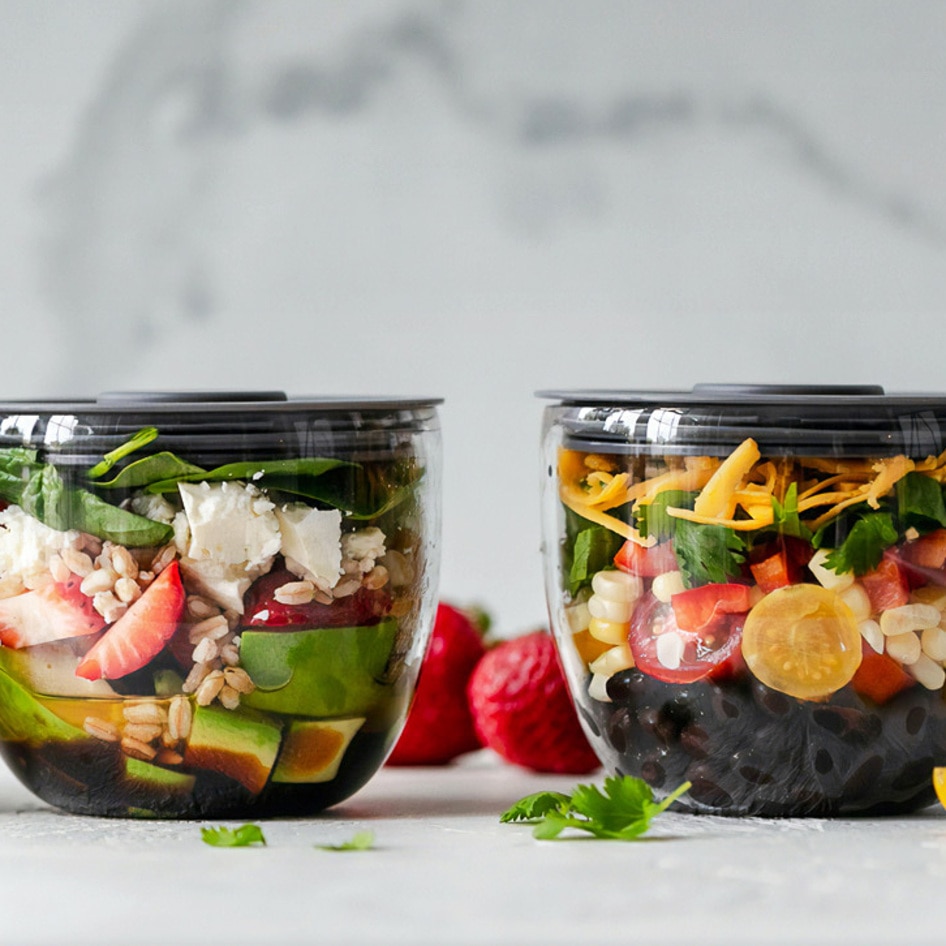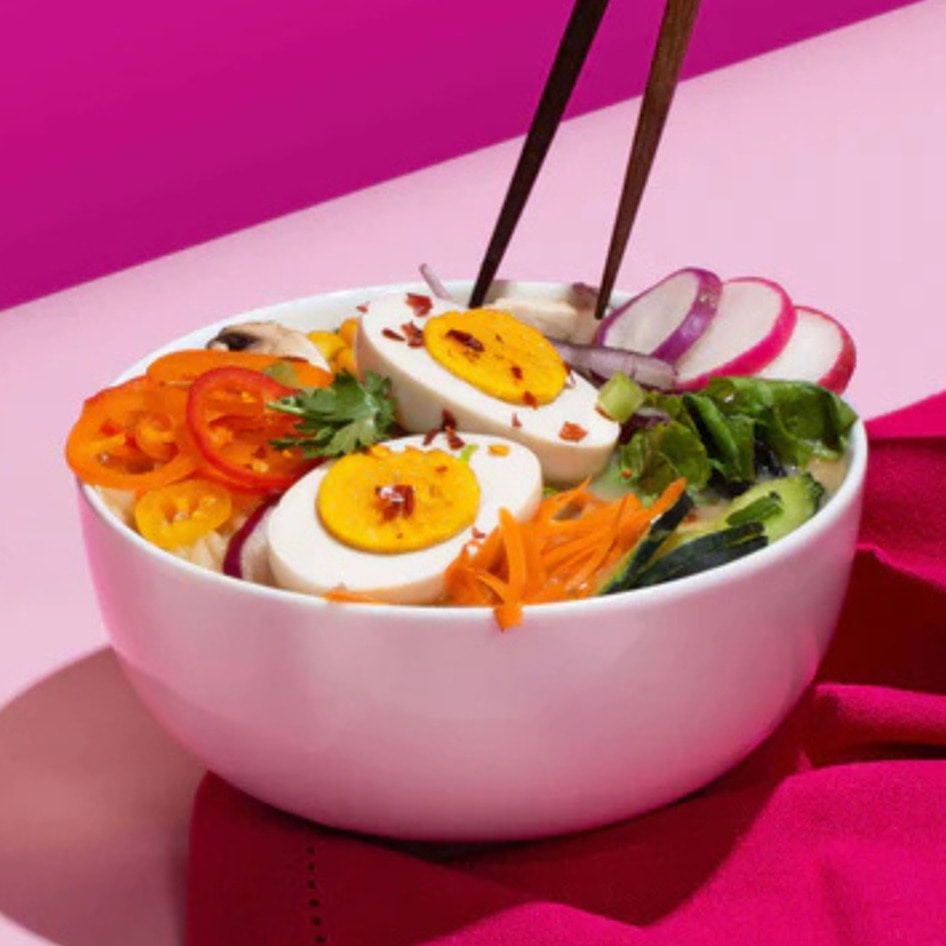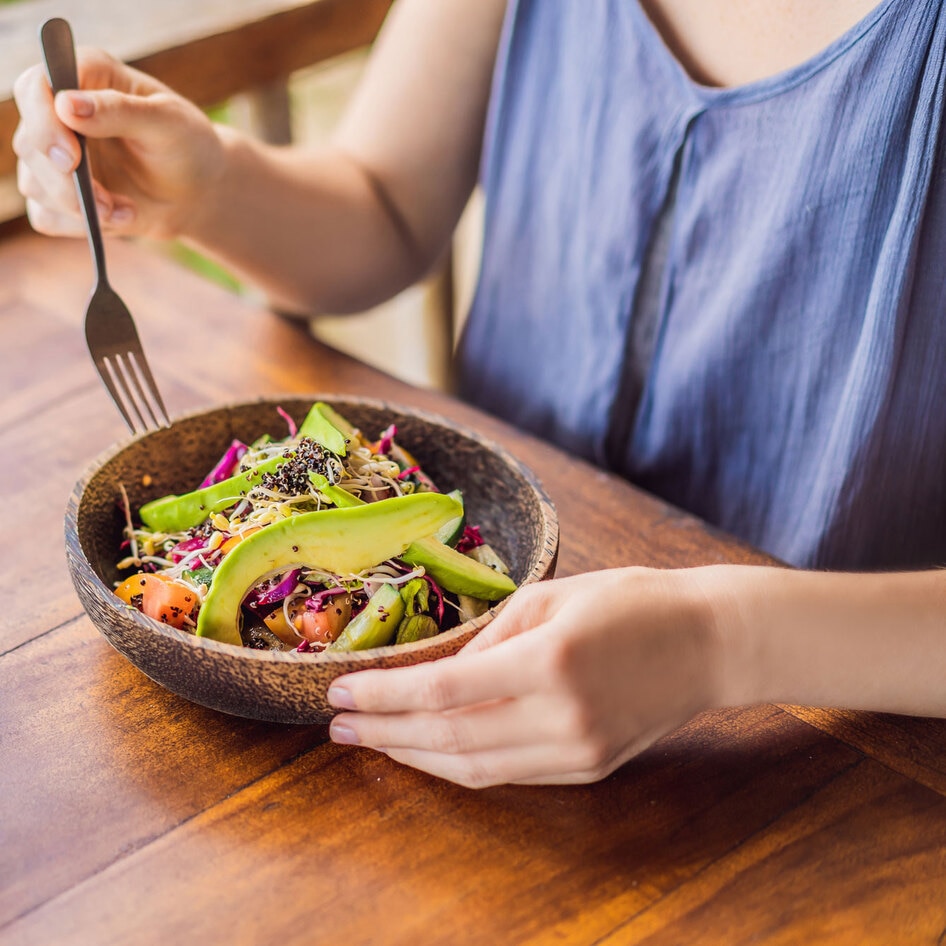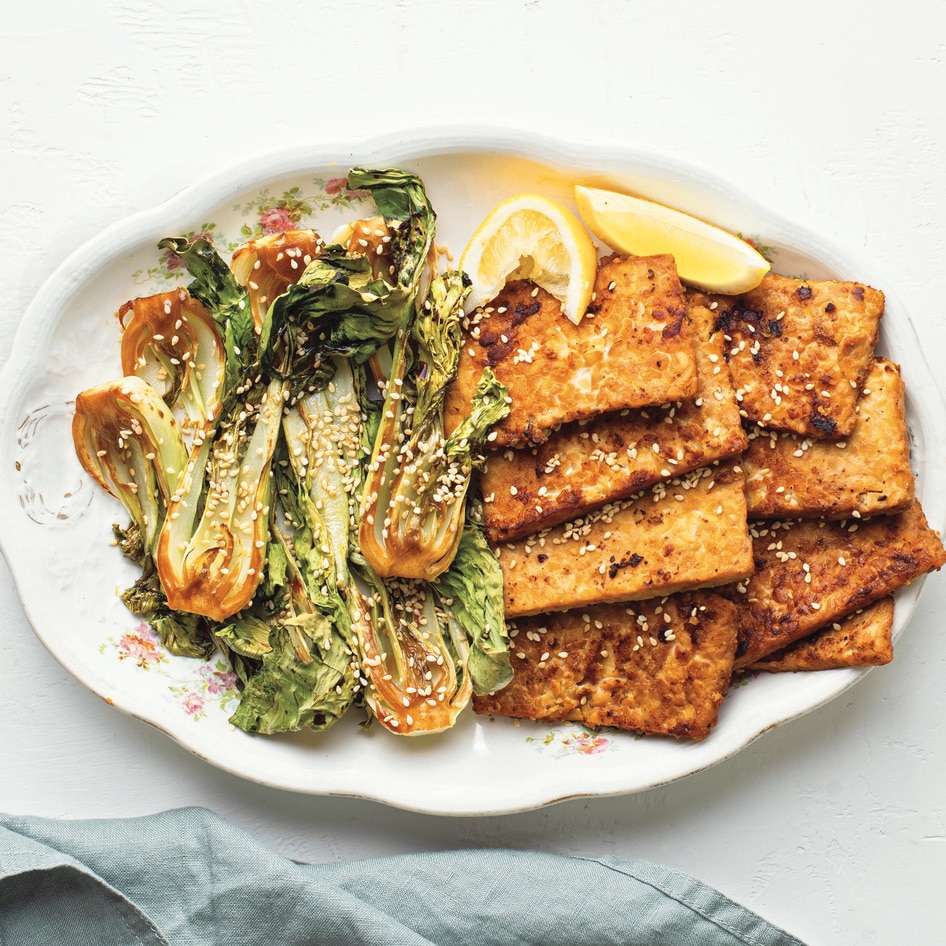Over the last few years, the vegan market has boomed. Now, you can walk down the grocery store, or head to a restaurant, and find plant-based versions of everything, from burgers to fish, and from cheese to milk. But while some companies and restaurants use the term “vegan” to describe their products, the term “vegan-friendly” is also used widely by publications and brands. But what does it actually mean? Is it different from just “vegan?” The truth is: it’s a little complicated because it’s very context-dependent. Here we break down a few different situations when “vegan-friendly” might be used and what it means.
 Getty
Getty
What is a vegan-friendly brand?
Usually, if a brand is 100-percent vegan then it will just use the term “vegan” or “plant-based” to describe the products that it sells. This could be anything from beauty to fashion to food. Usually, these claims are backed up by certifications. If it has been certified by the Vegan Society, for example, then it can proudly display the Vegan Trademark. Vegan Action also certifies products as totally vegan, and right now, around 20,000 products display its Certified Vegan stamp on their packaging.
But if a product has not been certified, it may choose to use the term “vegan-friendly” on its packaging instead, or alternatively, “suitable for vegans.”
“’Vegan-friendly’ products have not been registered with the Vegan Trademark but are said to be vegan by the manufacturer/company,” notes The Vegan Society. “However, The Vegan Society cannot guarantee that the latter products are vegan, as we have not checked them against our Vegan Trademark standards.”

If you’re concerned about whether a “vegan-friendly” product is actually vegan, the best thing to do is to check the ingredients list (if it’s a food or beauty product), reach out to the brand for clarification, or urge it to apply for a vegan certification.
But sometimes, publications may also use the term “vegan-friendly” if they are referring to a brand that has some vegan products but is not totally vegan. For example, many mainstream food brands are not vegan, but they have launched vegan versions of their popular products.
Take Reese’s, for example, which released vegan peanut butter cups. While at the moment it does not cater to vegans at all, when it releases a vegan product, it may then be labeled by some as a “vegan-friendly” brand.
‘Vegan-friendly’ in the restaurant industry
Again, in the restaurant industry, “vegan-friendly” may be used to indicate that an eatery has vegan options, but is not totally vegan. This means that groups of friends or families with different dietary requirements can all eat in the same place. In the US, nearly 50 percent of restaurants now serve vegan options, but they’re not all totally plant-based establishments, as most of them cater to omnivores, too.
To describe restaurants that cater to vegans as well as meat-eaters, the app and online platform Happy Cow, for example, often uses the term “vegetarian-friendly.” It will then go on to list all of the eateries with vegan or vegetarian options in your area.
 Unsplash
Unsplash
Entire cities have also been dubbed “vegan-friendly” in the past, and this is based on the number of vegan restaurants or restaurants with vegan options it has. In 2019, for example, HappyCow ranked several UK cities on their “vegan-friendliness.” London had more than 150 completely vegan restaurants, so it was awarded the title of the “most vegan-friendly city in the world.”
The term “plant-forward” in relation to a business is similar to vegan-friendly. Again, it’s very context-dependent. It may mean that a restaurant is totally plant-based, but it may also mean that it is simply prioritizing vegan food and catering to those looking for vegan options. One way to be sure which one it is? Check the menu!
Can restaurants still say they are ‘vegan-friendly’ if they use shared equipment?
Sometimes restaurant chains may avoid using the term “vegan-friendly” even if they offer menu items that are totally plant-based. And that is often because the food has been cooked with the same equipment that has been used to cook animal products. Brands may do the same, if, for example, a product has been made in a facility where they cannot guarantee that cross-contamination with animal products hasn’t occurred.
 Priscilla du Preez
Priscilla du Preez
Whether you deem these foods “vegan-friendly” yourself is a personal preference. Some vegans may choose to eat them, and others may not. But it’s worth noting that, in the past, animal-rights organization People for the Ethical Treatment of Animals has encouraged consumers not to get too hung up on the shared equipment issue, stating that it “only makes restaurants less inclined to offer vegan choices.”
Ultimately, the term “vegan-friendly” can be used in many different contexts, and right now, there is no real regulation over its use. But it’s important to remember that if you’re unsure, you can always ask your server for more information if you’re in a restaurant, or email a brand with questions if you need more clarification.
For more plant-based stories like this, read:
JUMP TO ... Latest News | Recipes | Guides | Health | Subscribe









